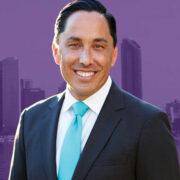NOONG Nobyembre 12, 2019, ang Supreme Court ay duminig ng oral arguments sa tatlong kasong isinampa laban sa desisyon ni President Donald Trump na tapusin na ang deportation protection para sa mga “Dreamer” o nasa ilalim ng DACA. Ang Deferred Action for Childhood Arrivals (DACA) Program ay nagbibigay ng deferral laban sa deportation. Ang DACA Program ay nagbibigay din ng work permit para sa mga 700,000 na undocumented immigrants na dumating sa US noong sila ay bata pa. Ayon sa Trump Administration, ang DACA ay labag sa batas at ang pagtapos ng DACA program ay isang paraan para itigil ang illegal immigration.
Ang USCIS ay tatanggap pa rin ng DACA Application mula sa mga indibidwal na mayroong DACA o dating may DACA. Ito ay dahil ang mga US District Court para sa Northern District of California, Eastern District of New York, at District of Columbia ay nagbigay ng mga nationwide injunction na nagpapahintulot sa mga nabigyan na ng DACA na mag-file ng renewal. Ayon din sa mga Court Order, ang USCIS ay kailangang patuloy na tumanggap at magproseso ng DACA renewal applications.
Ang renewal ng DACA ay maaaring i-file kung ang aplikante ay eligible sa the initial 2012 DACA guidelines: (1) siya ay wala pang 31 taon gulang noong Hunyo 15, 2012; (2) siya ay dumating sa US bago ang kanyang 16 taon kaarawan; (3) siya ay nananatiling nakatira sa US mula Hunyo 15, 2007 hanggang sa kasalukuyan; (4) siya ay nasa US noong Hunyo 12, 2012 at noong siya ay humingi ng unang DACA; (5) siya ay walang status noong Hunyo 15, 2012; (6) siya ay kasalukuyang nag-aaral, naka-graduate ng high school or nakakuha ng GED certificate; (7) siya ay walang felony conviction, walang conviction para sa significant misdemeanor, o conviction para sa tatlo o mahigit pang misdemeanor; at (8) siya ay hindi threat sa national security at safety.
Maliban dito, ang DACA renewal ay maaaring gawin ng Dreamer kung: (1) siya ay hindi umalis ng US noong Agosto 15, 2012 (o pagkatapos ng petsang ito) na walang advance parole; (2) siya ay patuloy na nakatira sa US mula sa kanyang unang DACA application at approval; (3) siya ay walang felony conviction, walang conviction para sa significant misdemeanor, o conviction para sa tatlo o mahigit pang misdemeanor; at (4) siya ay hindi threat sa national security at safety.
Ang magiging kapalaran ng DACA ay hindi tiyak. Inaasahang ang Supreme Court ay magkakaroon ng desisyon sa summer of 2020. Mabuti para sa mga Dreamer na eligible sa renewal ng kanilang DACA na magfile na ng kanilang renewal.
* * *
On November 12, 2019, the Supreme Court heard arguments on three cases against President Donald Trump’s decision in 2017 to end deportation protections for “Dreamers” or those under DACA. The Deferred Action for Childhood Arrivals (DACA) Program grants deferral from deportation. It also grants work permits to nearly 700,000 undocumented immigrants who arrived in the US as children. According to the Trump Administration, DACA is unlawful and ending DACA deters illegal immigration.
USCIS will continue to accept DACA Applications from individuals who currently have or who previously had DACA. This is because US District Courts for the Northern District of California, Eastern District of New York and the District of Columbia have issued nationwide injunctions allowing people who have previously had DACA to renew their deferred action. The orders of the Courts also require USCIS to continue accepting and adjudicating DACA renewal applications.
A request for renewal of DACA may be made if the Dreamer meets the initial 2012 DACA guidelines: (1) he was under 31 years old as of June 15, 2012; (2) he came to the US before reaching his 16th birthday; (3) he has continuously resided in the US since June 15, 2007 up to the present time; (4) He was present in the US on June 12, 2012 and at the time of making his request for consideration of deferred action with USCIS; (5) he had no lawful status on June 15, 2012; (6) he is currently in school, has graduated or obtained a certificate of completion from high school, has obtained a general education development (GED) certificate, or is an honorably discharged veteran of the US Armed Forces or US Coast Guard; and (7) he has not been convicted of a felony, a significant misdemeanor, three or more misdemeanors, and does not otherwise pose a threat to national security or safety.
In addition to the above, DACA renewal may be made if the Dreamer: (1) did not depart the US on or after August 15, 2012 without advance parole; (2) has continuously resided in the US since submission of the most recent DACA request that was approved; (3) has not been convicted of any felony, a significant misdemeanor, or three or more other demeanors; (4) does not otherwise pose a threat to national security or public safety.
The ultimate fate of DACA is uncertain. Decision by the Supreme Court is expected by summer of 2020. Dreamers who are eligible for renewal of their DACA should immediately file their renewal.
* * *
ATTY. RHEA SAMSON is a Partner at LINDAIN & SAMSON LAW FIRM. Atty. Lindain and Atty. Samson are both licensed to practice law in California and in the Philippines. Both Attorneys were also professors. LINDAIN & SAMSON LAW FIRM aims to provide excellent and efficient legal representation to clients, and support clients in achieving their goals and dreams. As professors, Atty. Lindain and Atty. Samson wish to educate the younger generation, as it is through education and continuous study that one can achieve success and serve others.
Please visit our office: LINDAIN & SAMSON LAW FIRM
3580 Wilshire Boulevard, Suite 1710, Los Angeles, CA 90010
Call or text us: (213) 381.5710
Email us: [email protected].





